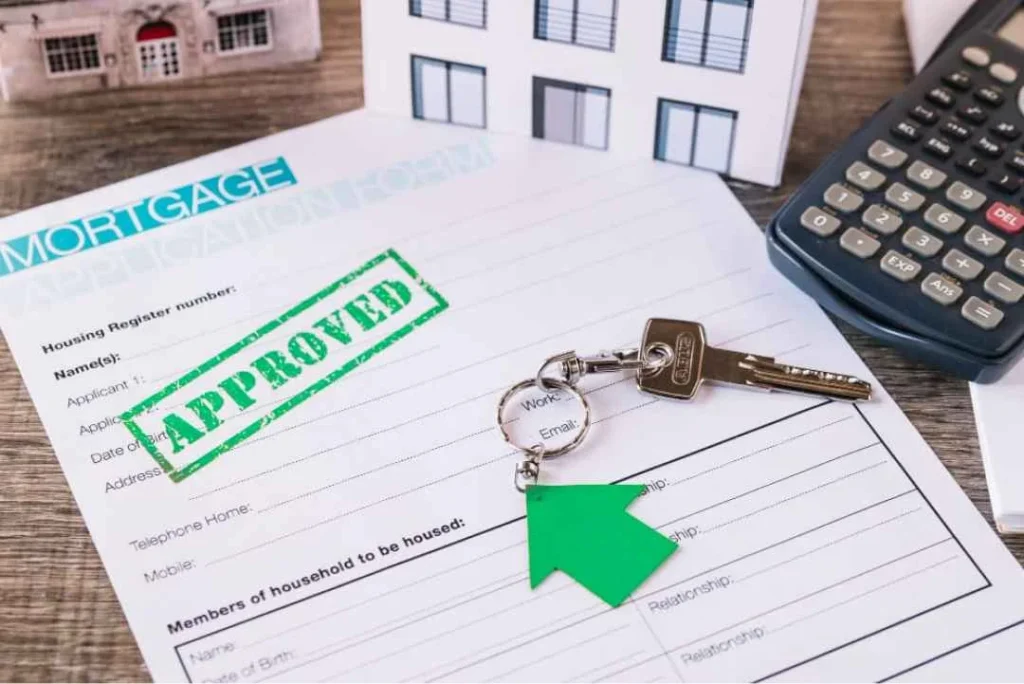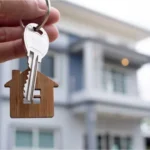
Quick Overviews
This article provides a comprehensive overview of the various low-down-payment mortgage options, including FHA, USDA, VA, and other loans.
Every application is carefully reviewed, taking into account its unique qualities, advantages, and drawbacks.
The advantages and disadvantages of low-down-payment mortgages are also covered in the article. Notable features include their accessibility and capacity to quicken the accumulation of equity, as well as the potential for higher monthly payments and longer loan terms.
Lastly, the article answers frequently asked questions about low-down payment mortgages and offers additional information for potential homeowners.
Saving money for a sizable down payment is one of the largest obstacles that many individuals have when purchasing a property. Thankfully, several low-down-payment mortgage options are offered to assist in expanding the number of people who may become homeowners. This post will discuss the various programs, their benefits and drawbacks, and provide answers to some commonly asked questions regarding mortgages with minimal down payments.
7 Low Down Payment Mortgages Program
FHA Loans: Your Card to Residential Ownership
First-time homebuyers and those with less-than-perfect credit frequently opt for Federal Housing Administration (FHA) loans. Aspiring homeowners can benefit from the flexibility and accessibility of FHA loans, which have a 3.5% down payment requirement. Furthermore, FHA loans frequently have affordable interest rates, which makes them a desirable choice for a lot of people.
VA Loans: Special Advantages for Veterans
VA loans may be your best option if you’re a veteran or an active-duty military member and want to become a homeowner with little or no down payment. As a thank you for their service, the U.S. Department of Veterans Affairs backs VA loans, which provide advantageous terms and alternatives for low or no down payment, enabling veterans to realize their dream of homeownership.
USDA Loans: Providing Affordable Rural Living
Do you have visions of a rural residence? USDA loans—backed by the U.S. Department of Agriculture—offer up to 100% financing to eligible borrowers in particular rural and suburban areas. USDA loans turn rural homeownership from a pipe dream into a genuine possibility with their low down payment requirements and attractive interest rates.
Conventional 97: A Low-Barrier Conventional Option
With just a 3% down payment needed, conventional 97 loans from Fannie Mae and Freddie Mac open the door to homeownership. traditional 97 loans, which provide the advantages of traditional financing with a smaller upfront investment and are best suited for borrowers with solid credit and steady income, enable many more people to become homeowners.
State-Sponsored Initiatives: Local Assistance for Purchasers
Numerous states provide low-down payment programs of their own to assist citizens in becoming homeowners. These initiatives could include grants, unique financing programs designed to meet local needs, or help with the down payment. To find out more about your options and open the door to homeownership in your neighborhood, get in touch with your state housing agency.
Good Neighbor Next Door: Public Employee Savings
Are you an emergency medical technician, teacher, police officer, or firefighter? The U.S. Department of Housing and Urban Development (HUD) runs the Good Neighbor Next Door program, which gives qualified public employees a 50% discount on HUD-owned properties in rehabilitation regions. For those who are committed to giving back to their communities, this initiative makes homeownership attainable with just a $100 down payment.
HomeReady Loans: Encouraging Borrowers with Low to Moderate Incomes
With flexible down payment options, including as little as 3% down, HomeReady loans are designed to encourage homeownership in low-to-moderate-income communities. For borrowers who would not be eligible for conventional financing, HomeReady loans offer a route to homeownership with reasonable interest rates and fewer mortgage insurance requirements.
Pros and Cons of Mortgages with Low Down Payments
The real estate market has completely changed as a result of low-down-payment mortgages, which present potential homeowners with both benefits and disadvantages. Making educated judgments requires an understanding of the benefits and cons of various funding solutions. Let’s examine the benefits and drawbacks of mortgages with small down payments:
Pros
- Accessible Homeownership: People with little resources can now realize their ambitions of becoming homeowners sooner thanks to low-down-payment mortgages.
- Financial Flexibility: Since there is less of a down payment required for these mortgages, borrowers can use their savings for emergency savings, home improvements, or investments.
- Increased Purchasing Power: As a result of a lower down payment requirement, buyers can afford more expensive homes, which broadens their options in the real estate market.
- Investment Potential: Some buyers may choose to invest their savings to increase their returns, as opposed to using them for a larger down payment.
- Tax Benefits: Owning a property often entails tax benefits, like mortgage interest deductions, which can assist in covering a mortgage’s costs with a small down payment.
Cons
- Buyers with small down payments frequently have to pay for private mortgage insurance (PMI), which raises their monthly costs until they achieve a predetermined amount of equity in the house.
- The danger of negative equity: Homeowners with low-down-payment mortgages may find themselves in negative equity if they find themselves owing more on their mortgage than their property is worth in the event of a market downturn or a decline in property values.
- Potentially Higher Interest Rates: Lenders may choose to impose higher interest rates to offset the risk of low down payments, which would increase the homeowner’s long-term borrowing expenses.
- Tighter Qualification Requirements: Lenders with stricter qualifying requirements, like lower debt-to-income ratios and higher credit scores, may limit the options available to borrowers seeking low-down-payment mortgages.
In conclusion, low-down-payment mortgages give a lot of people access to the home market and flexibility by allowing them to become homeowners. Before committing to this kind of financing, you should, however, thoroughly assess your financial status and balance the benefits against any potential negatives.
Things Prospective Homeowners Need to Know
Comprehending the Process of Purchasing a Home
For many people, buying a home is an important milestone. Being well-informed is crucial before starting this adventure. It is essential to comprehend the home-buying process to make wise choices.
Financial Planning: Savings and Budgeting
To buy a property, prospective homeowners must first evaluate their financial status. This entails setting aside money for a down payment and making a budget. A down payment that ranges from 3% to 20% of the cost of the house is usually required by the lender.
Obtaining a Pre-Approved Mortgage
Getting pre-approved for a mortgage is helpful when looking for a home. It lets buyers know exactly how much they can afford and shows sellers that they are serious about making a purchase. A lender will examine the buyer’s financial records to pre-approve the loan and establish the maximum amount.
Selecting the Appropriate Property Broker
Reliable and competent real estate agents can speed up the home-buying process. They help purchasers with the paperwork, negotiating offers, and locating appropriate houses. Before selecting an agent, it is advisable to conduct research and interview a number of them.
Inspections of Homes: Exposing Hidden Problems
Before completing a purchase, a thorough house inspection is essential. Inspectors assess the state of the property, looking for any possible concerns like insect infestations, plumbing issues, or structural flaws. With this knowledge, purchasers are better equipped to decide what to buy and, if needed, bargain for repairs or price reductions.
Knowing Your Mortgage Options
There are several mortgage choices available to buyers, each with specific terms and restrictions. Fixed-rate mortgages, adjustable-rate mortgages (ARMs), and government-backed loans like VA or FHA loans are examples of common loan kinds. Buyers can choose the best mortgage product for their needs by doing their homework and comparing several options.
Taking the Neighborhood and Location into Account
The value and desirability of a property are greatly influenced by its location. Homebuyers’ decisions are influenced by various factors, including areas’ closeness to schools, employment, amenities, and transit. Investigating the demographics of the community, going to nearby businesses, and studying neighborhoods can all offer insightful information about the area’s desirability.
Setting Up a Budget for Extra Charges
Aside from the purchase price and mortgage, prospective homeowners need to account for other costs related to being a homeowner. These could include utilities, homeowners association (HOA) dues, property taxes, homeowners insurance, upkeep, and repairs. By budgeting for these expenses, one can avoid unforeseen financial hardship and ensure financial stability.
Complete the Purchase: The Closing Procedure
The procedure of closing represents the end of the house-buying process. It includes distributing money, transferring ownership, and signing legal paperwork. It is necessary to account for closing costs, which include attorney fees, title insurance, and lender fees. Buyers should carefully read over all of the documentation and ask questions about any terms or conditions that are unclear.
The Final Word
Aspiring homeowners today have more alternatives than ever to realize their aspirations of becoming homeowners, thanks to the range of low-down-payment mortgage programs available. It’s crucial to consider the advantages and disadvantages and select the choice that best fits your goals and financial condition, regardless of whether you qualify for an FHA loan, a USDA loan, a VA loan, or any of the other programs mentioned. Recall that purchasing a home is a big financial decision, so make sure you make the right one by doing your homework and speaking with experts. Happy looking for a place to call home!
Answers to related questions (FAQs)
What is a mortgage with a low down payment?
A mortgage with a low down payment is a type of house loan where the borrower makes a small down payment at first. These initiatives aim to increase the number of people who can afford to buy a home even if they don’t have enough money saved for a sizable down payment.
Is PMI required for all mortgage programs?
No, PMI is not necessary for every mortgage program. For instance, PMI is not needed for VA loans, which are accessible to veterans, active-duty military personnel, and qualified surviving spouses.
What is a sweat equity program?
Through the use of their work, borrowers can contribute to the construction or renovation of their houses through a sweat equity program, thereby lowering the required down payment.
What impact does my credit score have on my ability to get a mortgage with a small down payment?
Credit score requirements vary throughout mortgage programs. For the majority of low-down-payment mortgage alternatives, a credit score of at least 620 is normally advised, although some programs may accept lower scores.
Is it feasible to eliminate PMI through refinancing?
Yes, you might be able to refinance and get rid of PMI, depending on your loan program and the equity you’ve established in your house.
A piggyback loan: what is it?
Taking out two loans at the same time—one for the entire mortgage amount and another for all or part of the down payment—is known as a piggyback loan. By doing this, borrowers may be able to eliminate the need for private mortgage insurance (PMI).
Can I make the down payment with gifted money?
You are frequently able to use the gifted money toward the down payment. However, there can be limitations or extra conditions, including presenting a letter from the gift provider.
Are there income restrictions on mortgages with low down payments?
Certain programs, like the USDA loan and the Fannie Mae HomeReady mortgage, may have income restrictions.
What advantages come with a mortgage with a little down payment?
In addition to enabling borrowers to start accumulating equity sooner and invest extra money elsewhere, low-down payment mortgages also make homeownership more accessible to people with limited savings.



Pingback: Which Is Right for You Minimum Payment or Full Payment?
thank you for your response!
Pingback: Expert guide to payday loans for financial freedom